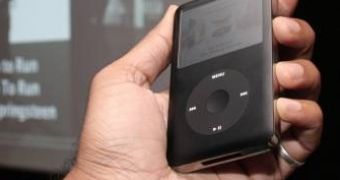iPods, portable media players, as well as the vast majority of the consumer electronics gadgets are allegedly posing a threat to the future development of the Internet. According to a study conducted by Professor Jonathan Zittrain, such devices are sealed plastic shells that are allegedly turning their users into passive ones of technology, similar to guinea pigs.
Jonathan Zittrain, a professor of Internet governance and regulation at the Oxford Internet Institute also said that the Internet-oriented gadgets don't allow users the same level of collaboration and cooperation found in home computers, and this should be regarded as an obstacle in technological advances.
"I don't want to see a two-tier world where only the experts can survive... and the non-experts are stuck between something they don't understand and something that limits them," Zittrain claimed.
According to the researcher, the Internet is an opened architecture that allowed worldwide enthusiasts to materialize new concepts and ideas through a well-knitted collaboration. Unlike the black-hat hackers, who use the Internet's open structure in order to harm other users, enthusiasts built on the existing technology to perfect and improve it.
Zittrain thinks that Apple's iPhone gadget is a "tethered appliance", despite the fact that they are extremely intuitive and easy to use. "They are tethered because it is easy to for their vendors to change them from afar, long after the devices have left warehouses and showrooms," he stated.
The progress is also brought by the increased security measures adopted, protecting the user against hackers. The most restrictive computer systems are those found in public libraries, universities and offices, where people are blocked from experimenting, and their input is drastically sanitized.
However, the caused damage is not permanent yet, and there are many ways to fix the issues. Zittrain claims that salvation will not come from technology, but rather from society, as it opens new perspectives to the Internet users. He names the example of Wikipedia, a worldwide project edited and maintained by the community, and at the same time, a worthy example of self-governance.

 14 DAY TRIAL //
14 DAY TRIAL //